I spent a very enjoyable couple of hours on this walk to see what sort of food sources could be found by a castaway on a beach.
(I photographed this beach many times over 6 months so the photos are out of the date sequence but are in the correct order for my food encounters on the actual South to North walk)
It started at this point - a rocky beach , then mangrove
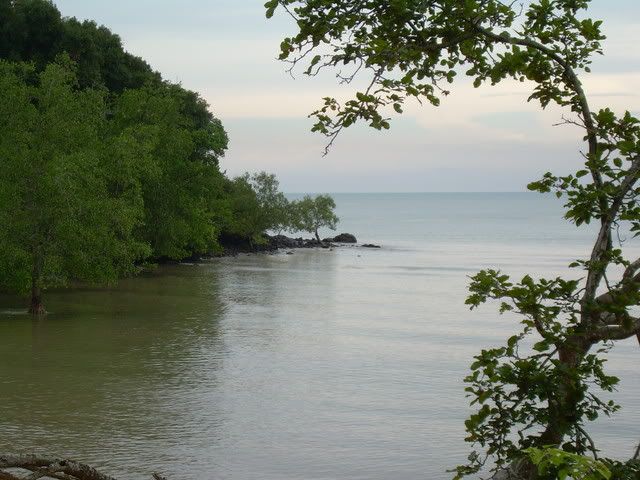
and then a long sandy strand, more rock and then muddy mangrove
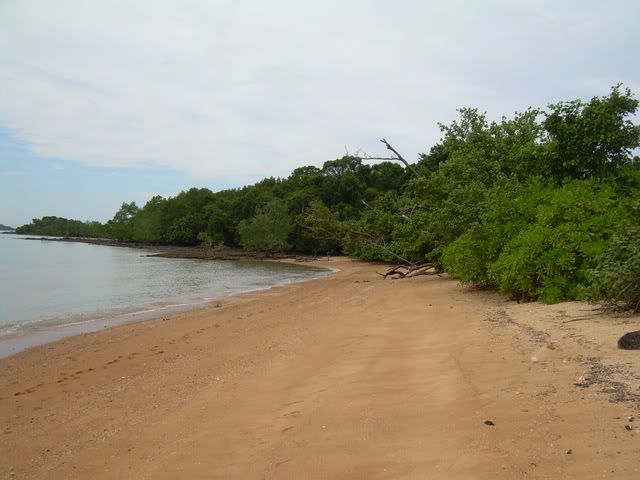
The first thing you find is lala, small shellfish found in the sand. It makes a delicious soup when flavoured with lemongrass. Im not sure about the distribution but Ive found them on the beaches of mainland South east Asia and the Indonesian archipelago. There were tens, if not hundreds, of thousands in the sand.
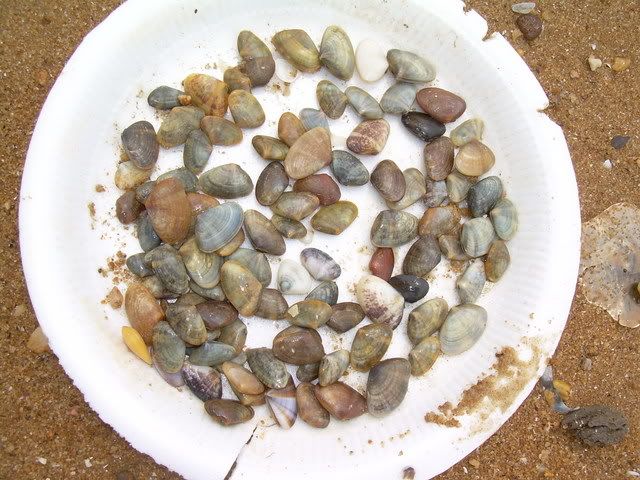
Up off the beach can be found the sea almond, smaller than the usual ones, but similar tasting. You can eat the nut raw. The leaves can be used as a medicinal tea. Found between Pacific Australia to the North Indian Ocean according to Wikipedia.
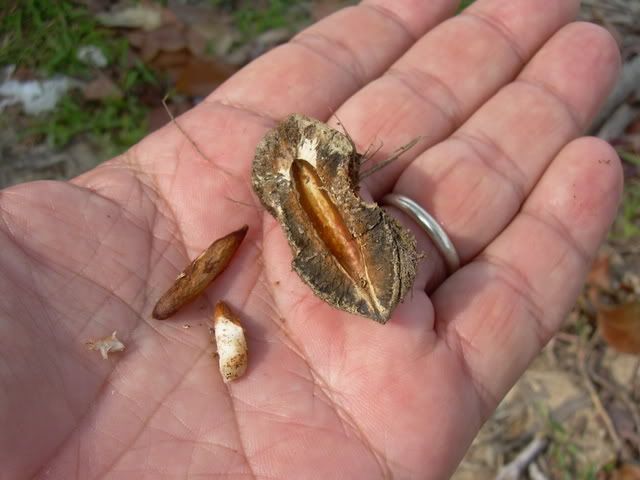
Still just off the beach is screw pine: again found from the Indian Ocean to the South Pacific. The heart is edible much like a palm heart. Boiled they taste like a slightly bitter potato. The fruit look like pineapples and are eaten in the South Pacific but only after some exhausting pounding, washing and drying cycles. Over here it is ignored
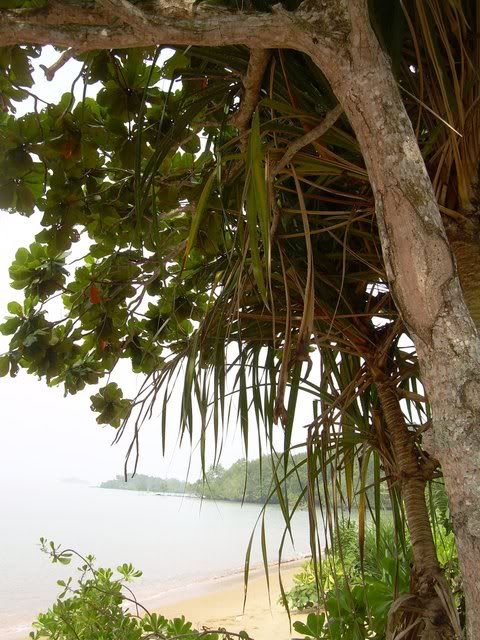
Once onto the rocks on the other side there are small fish and prawns in the rock pools. Not very visible
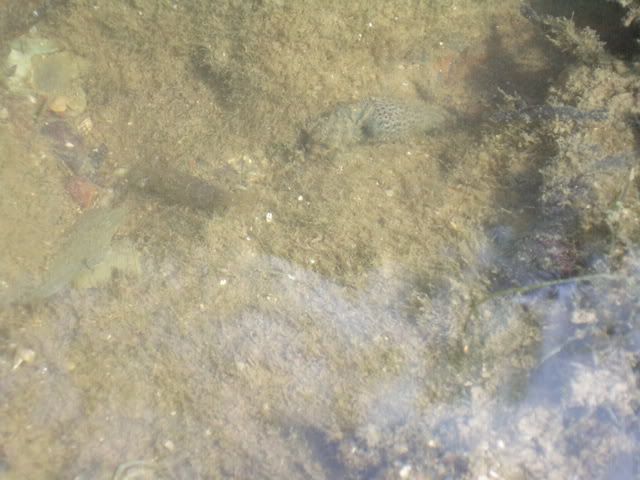
Also quite a few krang , a type of clam
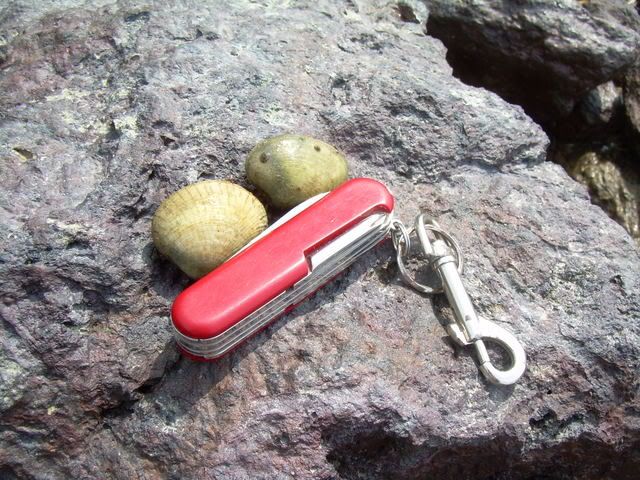
This little fellow is edible but who could eat him with that disapproving expression?
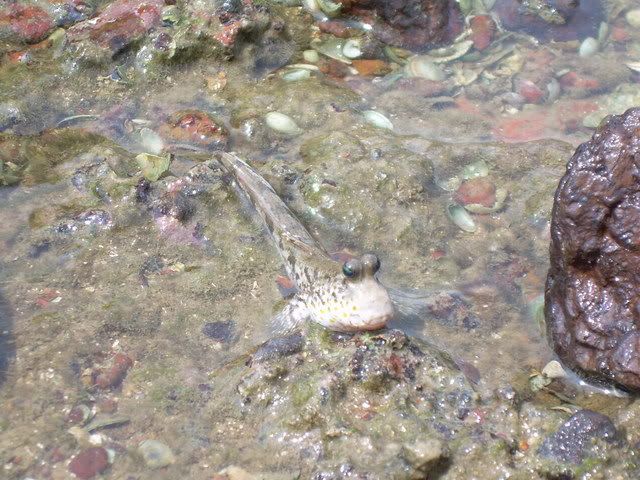
Oysters are next on the menu and I decided to try them. No lemon unfortunately but better than Wheelers in St. Jamess. There were a few more oysters but I left them alone.
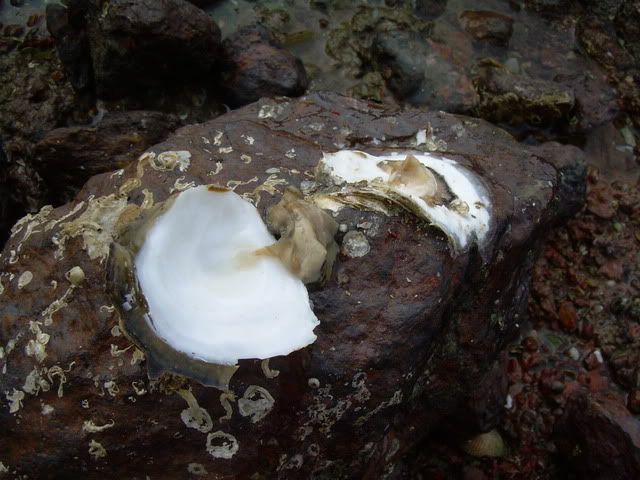
The crab eating macaques forage here too. Roast monkey I have found to be a nice dish in the jungle so why not on a beach BBQ?
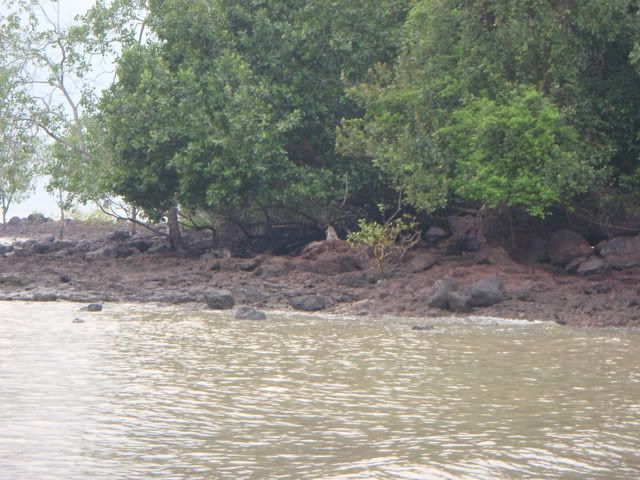
Around the corner were the mudflats.
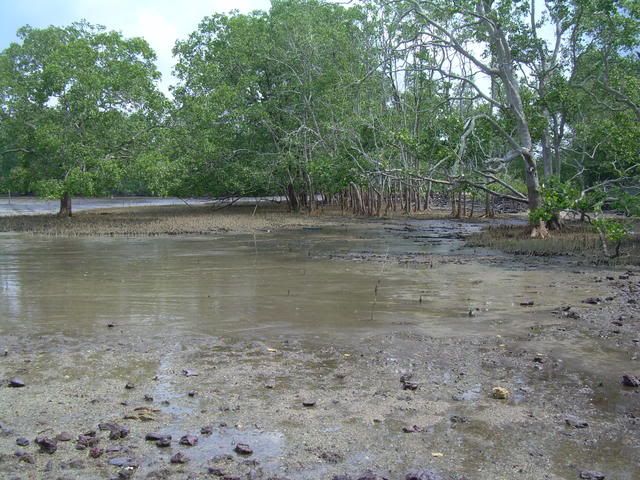
Just then my Teva sole started yawning and I decided to head back. Had I gone on I would have expected to find telescopium and possibly mud crabs. This photo is of Bornean telescopium
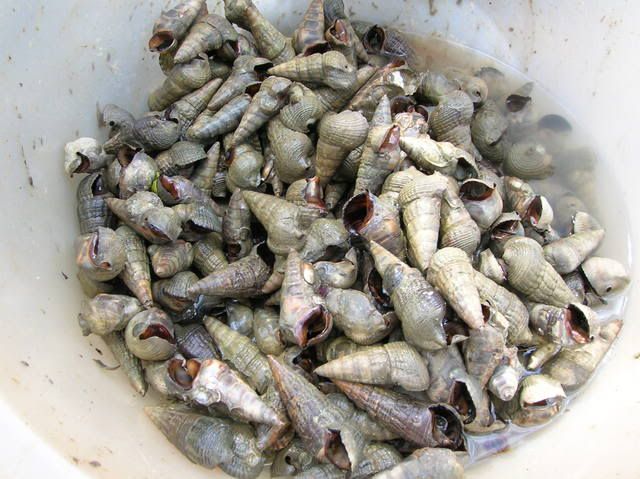
I had stayed between the sea and the top of the beach and in a kilometer had found enough to provide a number of reasonable meals. Inland the amount of edible fruits and plants increases dramatically but then its not a beach forage anymore.
As long as there is water, I guess you can exist on a large island for a long time like Robinson Crusoe.
(I photographed this beach many times over 6 months so the photos are out of the date sequence but are in the correct order for my food encounters on the actual South to North walk)
It started at this point - a rocky beach , then mangrove

and then a long sandy strand, more rock and then muddy mangrove

The first thing you find is lala, small shellfish found in the sand. It makes a delicious soup when flavoured with lemongrass. Im not sure about the distribution but Ive found them on the beaches of mainland South east Asia and the Indonesian archipelago. There were tens, if not hundreds, of thousands in the sand.

Up off the beach can be found the sea almond, smaller than the usual ones, but similar tasting. You can eat the nut raw. The leaves can be used as a medicinal tea. Found between Pacific Australia to the North Indian Ocean according to Wikipedia.

Still just off the beach is screw pine: again found from the Indian Ocean to the South Pacific. The heart is edible much like a palm heart. Boiled they taste like a slightly bitter potato. The fruit look like pineapples and are eaten in the South Pacific but only after some exhausting pounding, washing and drying cycles. Over here it is ignored

Once onto the rocks on the other side there are small fish and prawns in the rock pools. Not very visible

Also quite a few krang , a type of clam

This little fellow is edible but who could eat him with that disapproving expression?

Oysters are next on the menu and I decided to try them. No lemon unfortunately but better than Wheelers in St. Jamess. There were a few more oysters but I left them alone.

The crab eating macaques forage here too. Roast monkey I have found to be a nice dish in the jungle so why not on a beach BBQ?

Around the corner were the mudflats.

Just then my Teva sole started yawning and I decided to head back. Had I gone on I would have expected to find telescopium and possibly mud crabs. This photo is of Bornean telescopium

I had stayed between the sea and the top of the beach and in a kilometer had found enough to provide a number of reasonable meals. Inland the amount of edible fruits and plants increases dramatically but then its not a beach forage anymore.
As long as there is water, I guess you can exist on a large island for a long time like Robinson Crusoe.
